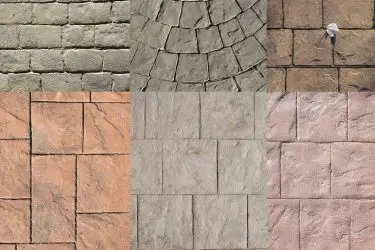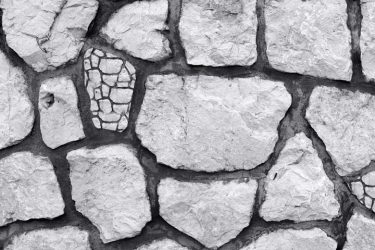If you know about concrete, you know that it is one of the most diverse man-made materials used world-wide for construction. You also know that concrete, while strong, do tend to crack over time. So if you have concrete roof tiles, you may have asked yourself the question: should I apply a sealer to my concrete tiles?
Sealing concrete roof tiles can extend the lifespan of the tiles for several years. However, it is not necessary to seal concrete roof tiles in every climate. This is because concrete tiles, while porous, are organized in a specific way on pitched roofs and do not allow water through into the house.
Concrete roof tiles are a cheaper alternative to clay tiles and can simulate the appearance of terra-cotta clay, wood, slate, and stone. Water- or weatherproofing concrete with sealer is an option open to you, but may not be worth the cost and effort.
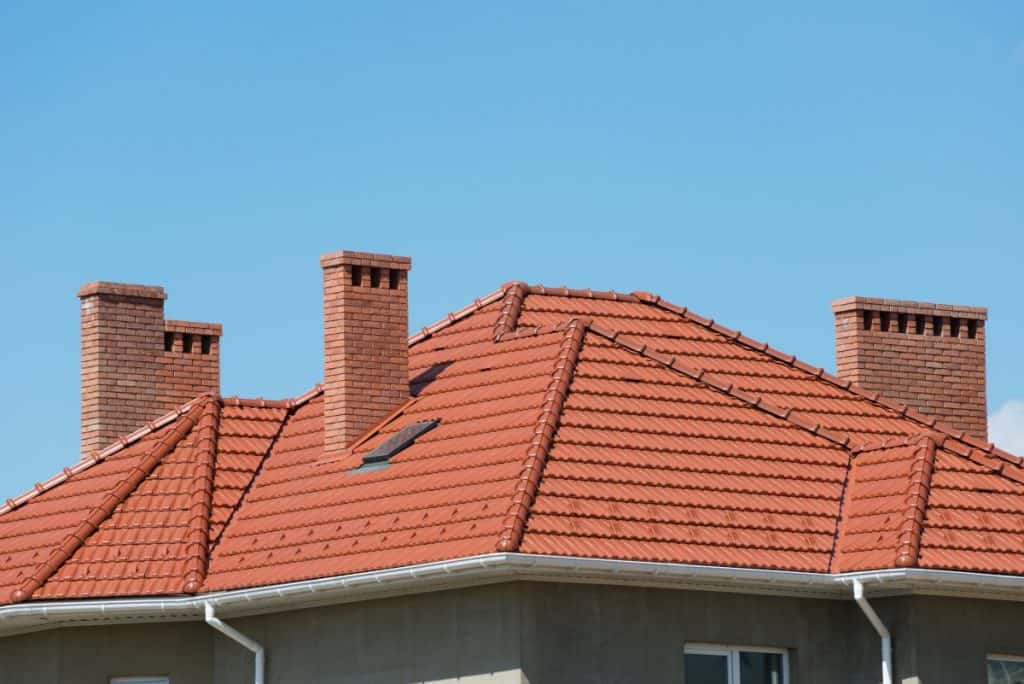
Table of Contents
Weathering Of Concrete
Even though it’s not necessary to seal your concrete tiles, you need to understand one aspect of concrete that many homeowners don’t understand. Concrete will weather more than other materials.
As opposed to clay, concrete needs a lot of maintenance to keep its strength and aesthetic appeal over time.
Concrete tiles are constantly exposed to the elements such as rain, snow, ice, and sunlight – which can all combine to either break the concrete or make the color fade away.
Concrete needs to be maintained every few years to prevent damage.
If you live in more extreme climates, the concrete mixture for your roof tiles may need to be specifically designed to withstand things like 100+ degree heat or the expanding and contracting of ice.
Since concrete has water molecules in its structure for many years after it cures, the heat and cold can disrupt the integrity of the concrete, causing cracks.
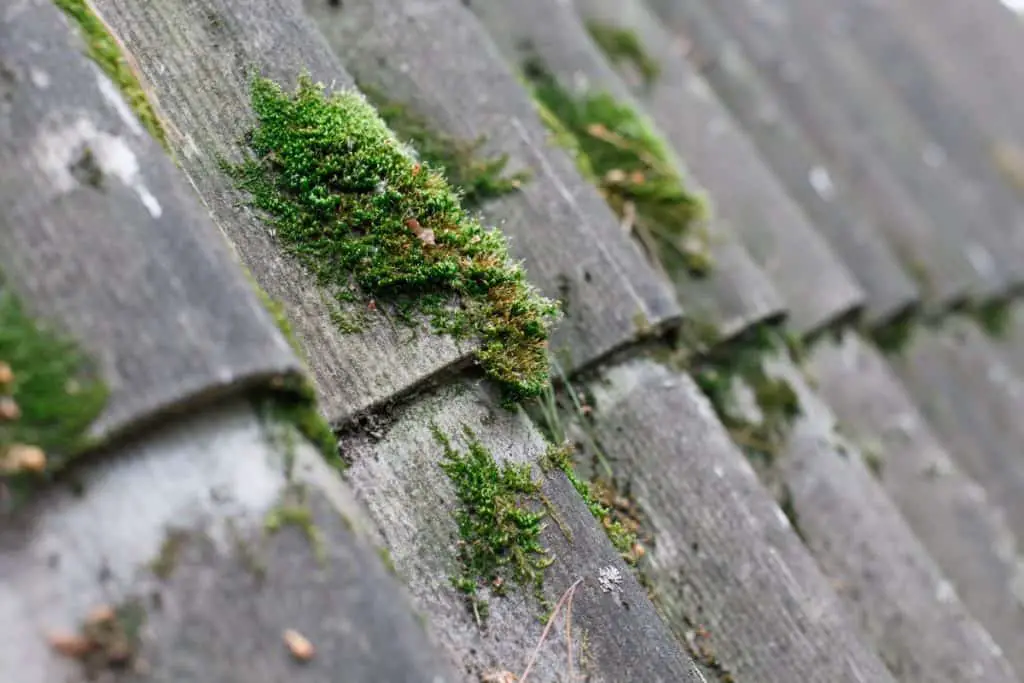
However, concrete is a very good and durable material for roofing tiles if they were made well and are designed to withstand weathering.
Manufacturers can add chemicals into the cement in order to make the concrete more durable in certain climates.
The concrete will still need maintenance over time, however, which includes cleaning and, yes, possibly sealing.
Advantages of Sealing Concrete Roof Tiles
Sealing your concrete tiles will offer several advantages to your roof.
As a part of the maintenance process of protecting your concrete, sealing increases the life of your concrete by defending against the growth of algae, mold, and mildew.
If your concrete has been mixed with a specific color pigment, the sealer also protects against the color fading in the concrete.
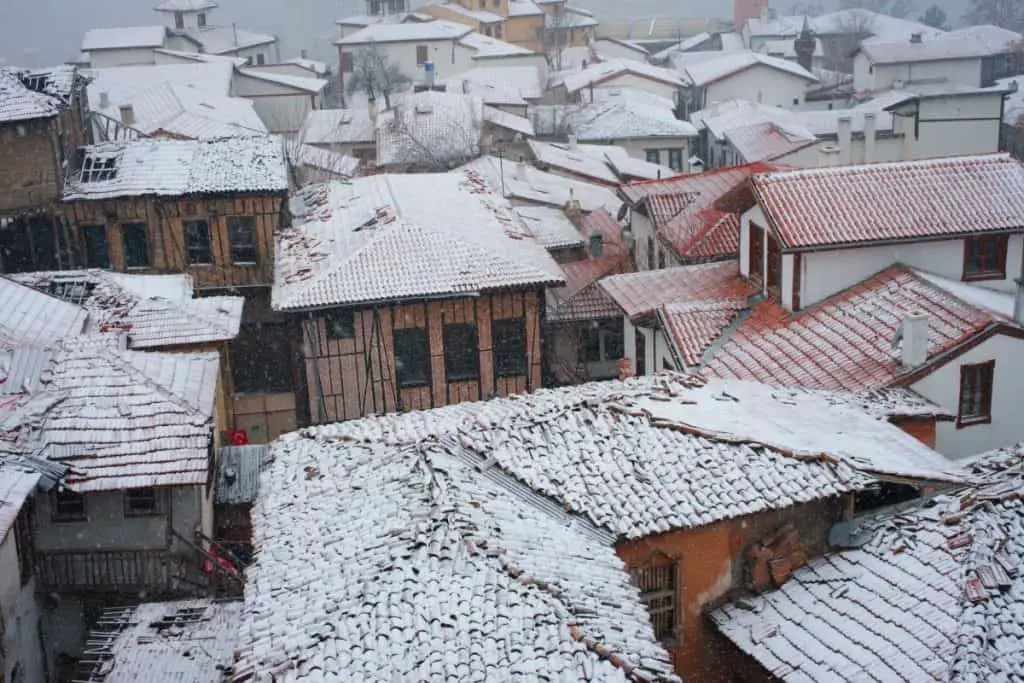
Sealers will protect your concrete from the harsh UV rays of the sun, and it can safeguard against weather conditions like hail, snow, rain, or other debris falling on the roof of your house.
Sealing concrete effectively waterproofs it so that rain can’t get into the concrete’s pores and potentially drip into your home.
Overall, sealing the concrete tiles for your home will be an investment in your home in the long run, and could potentially raise the value of your home.
The lifespan of well-maintained concrete can extend anywhere between 20 to 70 years or more.
Related Article: Choosing Concrete vs Clay Roof Tiles: 9 things to consider
Disadvantages of Sealing Concrete Roof Tiles
A concrete sealer does not 100% guarantee your concrete will be safe forever.
Unfortunately, you will need to reapply the sealer to the concrete every 3 to 5 years.
This might be one of the main disadvantages of sealers to homeowners.
Some sealers may not be so environmentally-friendly as well and may contaminate the soil, kill the grass around your house, or get into gardens. It’s therefore important to choose the best concrete sealer for your needs.
Remember to always wear a mask, gloves, and a covering on your clothes before applying any sealer. It will stain fabric and can cause health problems if inhaled where it isn’t well-ventilated.
The cost of sealing an entire roof can get pricey.
While it depends on the contractor, the average cost to seal the concrete tiles of your roof is around $1,100.
In reality, you could end up paying anywhere between $60 and $5,000 or more to seal your entire roof. So while concrete is definitely the cheaper option for roofing tiles, the long-term cost can get very high.
Concrete Roof Tiles Don’t Absolutely Need to Be Sealed
There is a myth out there that concrete tiles absolutely need to be sealed, which isn’t the case.
Concrete tiles work perfectly well to stop water from seeping through into your house, otherwise, they wouldn’t be so widely used now in homes.
However, despite concrete’s tenacity and cheapness, it must be maintained over the years in order to keep its strength and waterproofing.
If you have concrete roof tiles, sealing should be seriously considered as an option and weighed against the pricing of consistent and yearly maintenance.

